Prof Louise Viljoen receives Jan H Marais Prize
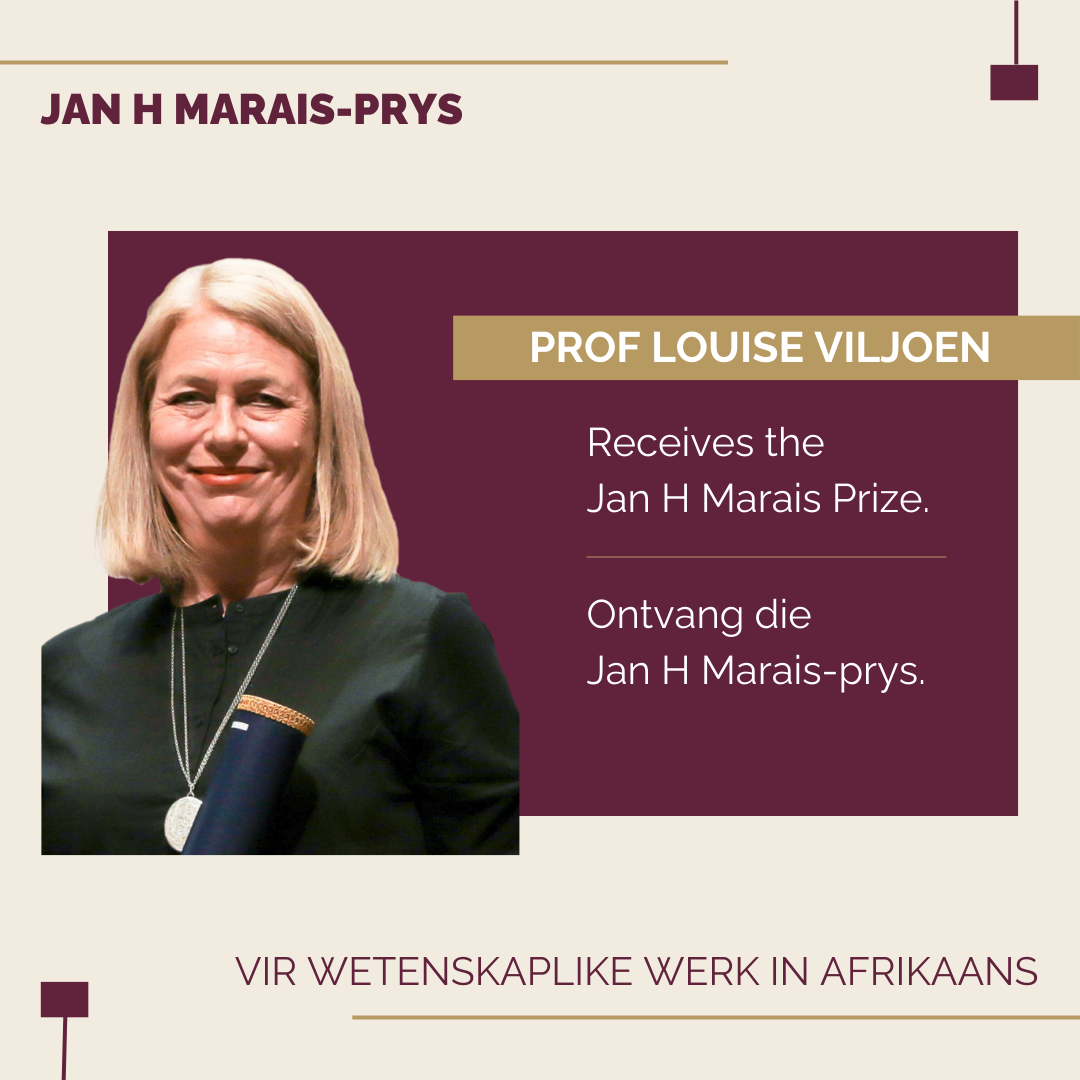 Prof Louise Viljoen, one of the most notable literary theorists working in Afrikaans in recent decades and a former colleague at the Department of Afrikaans and Dutch, has received the the Jan H Marais Prize.
Prof Louise Viljoen, one of the most notable literary theorists working in Afrikaans in recent decades and a former colleague at the Department of Afrikaans and Dutch, has received the the Jan H Marais Prize.
This is the second year in a row that someone associated with the Department has received this coveted prize. The Department is immensely proud to be associated with Prof Viljoen and congratulates her on this tremendous achievement.
Read the press release (in Afrikaans) announcing her as the winner
HERE.
Read an article on the SU website HERE.
.png) Chancellor’s Award for Research
Chancellor’s Award for Research
Prof Ilse Feinauer of the Department of Afrikaans and Dutch received a Chancellor's Award for sustained excellence in research on Monday 5 December 2022. A maximum of 15 such prestige awards are presented for research, innovation, learning and teaching, social impact, and professional services during the December graduation ceremonies.
During her 40 years as an academic at SU, Prof Feinauer has established an exceptional research profile, both nationally and internationally. She is one of the founding members of the African Society for Translation Studies (ATSA) and is a member of the executive board of the European Society for Translation Studies (EST). Her continued involvement in international organisations and conferences led to the EST conference being held in Stellenbosch in 2019 – the first time it has been held outside of Europe.
Prof Feinauer also remains deeply involved with language practice locally and with Afrikaans linguistics. She is the first holder of the Ton and Anet Vosloo Chair in Afrikaans Language Practice in the Department of Afrikaans and Dutch and is the vice-chair of the South African Academy of Science and Arts.
Department receives SARS multilingual terminology list
On Wednesday 17 August 2022, a representative from the SARS Language Unit presented the Department of Afrikaans and Dutch with copies of their multilingual terminology list. The list contains tax-related terms in all 11 official South African languages. Curious about what tax terminology looks like in your language? Consult the pdf version of the list by clicking HERE.
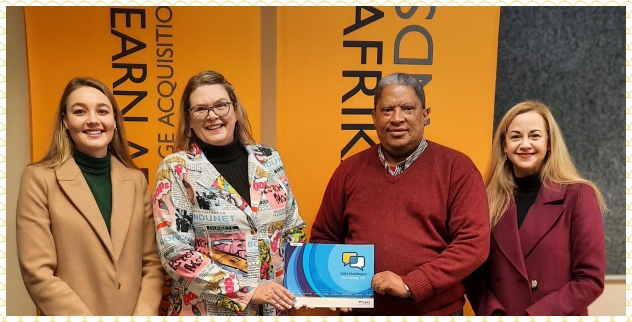
Ms Maret Blom-De Wet, Ms Aletia Ollewagen (SARS Language Unit), Prof Harold Lesch and Dr Amanda Marais
Dr Lorna Morris receives AS Hornby Dictionary Award
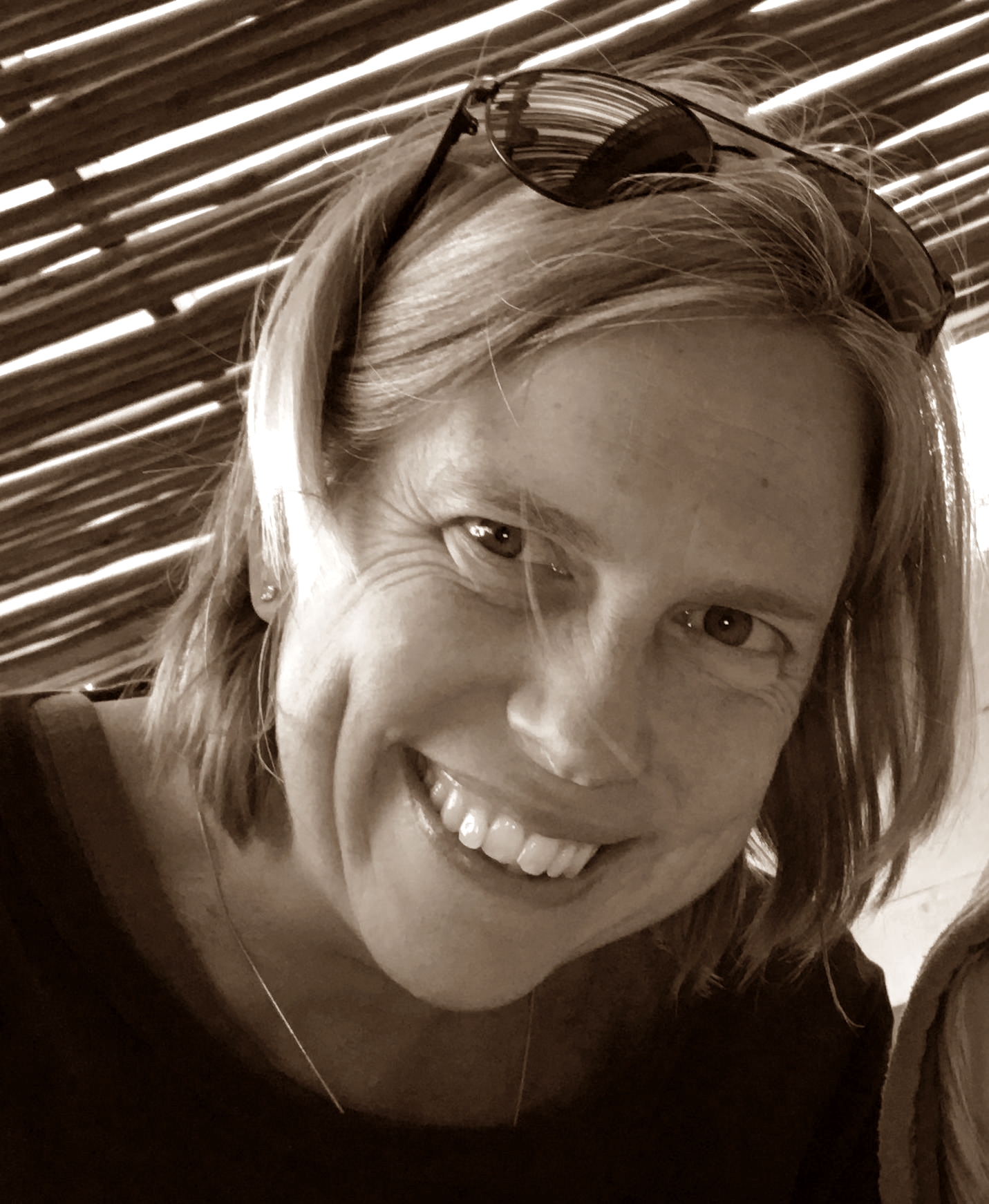 In 2021 Dr Lorna Hiles Morris completed her PhD (Lexicography) in the Department as well as a term as Consolidoc fellow. She has recently been awarded the international A.S. Hornby Dictionary Award – a £15 000 two-year research grant for her proposed research into electronic dictionary devices for South African primary school children.
In 2021 Dr Lorna Hiles Morris completed her PhD (Lexicography) in the Department as well as a term as Consolidoc fellow. She has recently been awarded the international A.S. Hornby Dictionary Award – a £15 000 two-year research grant for her proposed research into electronic dictionary devices for South African primary school children.
The aim of the A.S. Hornby Dictionary Award is to fund original research that produces clear practical benefits for learners of English. Each year the adjudicators look for and reward interesting and innovative proposals which link lexical research activities with the needs of language learners. Dr Morris's research follows on from her PhD, in which she designed entries for an electronic school dictionary that expressly supports learners who are not learning in their home language. Her new project, supported by the A.S. Hornby Dictionary Award, will take these designs and test them on electronic devices in schools. If the research produces positive outcomes, it will be a significant step in the development of a portable dictionary device for South African schools, supporting literacy in primary schools.
The Department is proud of Dr Morris's achievements and wishes her success as she continues her research.
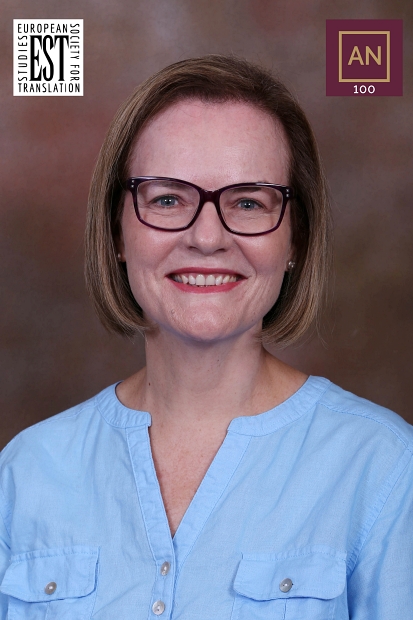
New term on EST board
Congratulations to Prof Ilse Feinauer, who was elected to the Executive Board of the European Society for Translation Studies (EST) for another term. From 22 to 25 June 2022, Prof Feinauer, Dr Amanda Marais and Mr Marius Swart are participating in the 10th EST Congress in Oslo, Norway.
No mayday on first MA Day
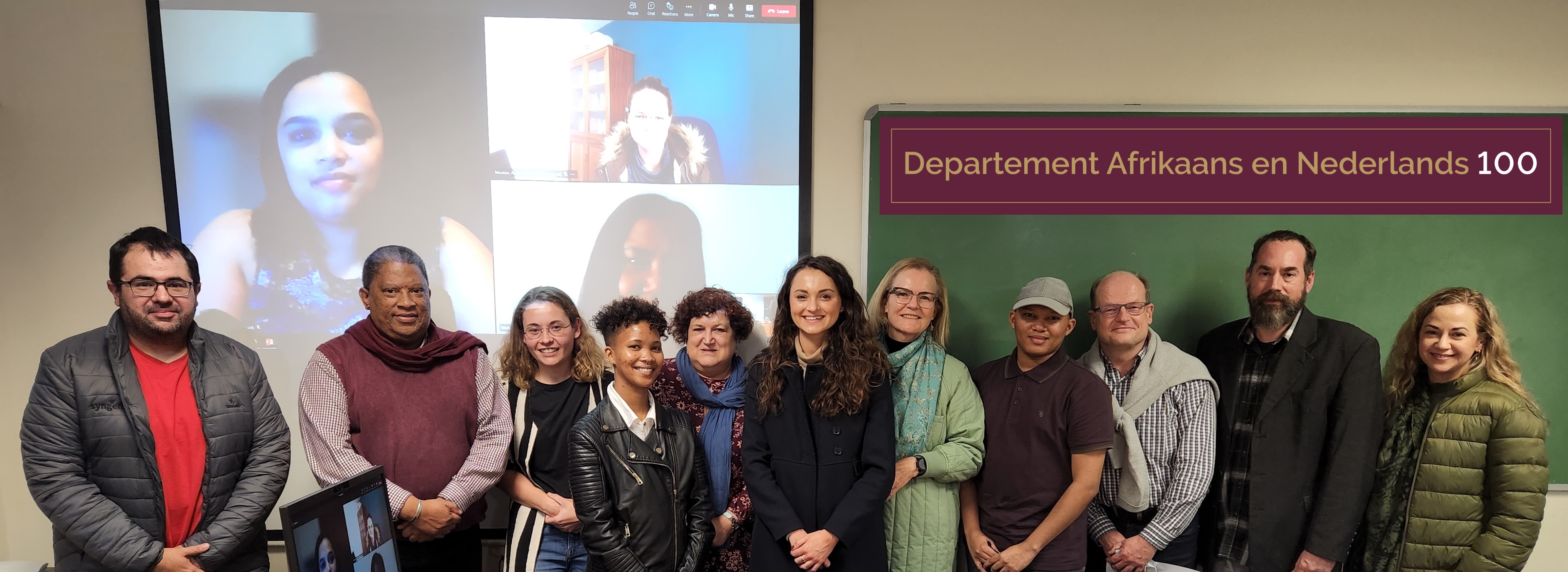
On Monday 13 June 2022, eight MA students in the Department of Afrikaans and Dutch showcased their research and their progress over the past six months by giving oral presentations on their research proposals.
The presentations form part of a new initiative in the Department, aimed at helping students to progress more rapidly and to learn from the research their peers are conducting. To this end, a research orientation week was held in January and students had to present their research proposals in June to an audience of staff members and fellow MA students. Besides those present in the Arts Building, presenters joined in from elsewhere in South Africa, from Namibia and, in one case, from a conference in Belgium.
According to Prof Ilse Feinauer, the holder of the Ton and Anet Vosloo Chair in Afrikaans Language Practice, who proposed the initiative, the MA Day was an immense success. In her roughly 40 years of involvement with the Department (as student and lecturer), this is the first time that so many MA students have made so much headway so quickly. Prof Harold Lesch, Chair of the Department, shared her view and added that it was fitting that the Department continued to find new ways of promoting research in its centenary year.
Dr Adendorff becomes a member of the SA Academy
Dr Elbie Adendorff, a senior lecturer in the Department of Afrikaans and Dutch, has joined the ranks of the South African Academy of Science and Arts as a full member. She has been lecturing in the Department since 2004.
Although anyone can apply to become a member, the Academy, founded in 1909, has strict membership criteria. If an applicant complies with these criteria, the Academy Board may elect them as a member. According to the Academy's Deed of Foundation, these criteria include “high-quality work", “a responsible position in the field of specialisation" and “peer recognition in the field of specialisation or area of work".
Dr Adendorff's research output and the excellent supervision she provides to her postgraduate students, is not only a tremendous boon to the Department, but also to scientific writing in Afrikaans and her specialisation of language acquisition.
Translation lecturer’s work enjoys international recognition
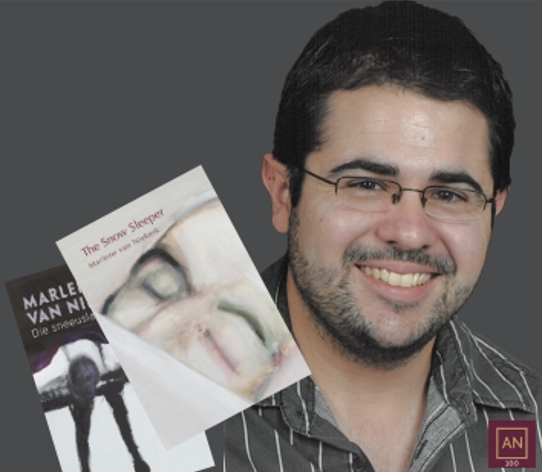
Marius Swart's work, particularly his English translation of Marlene van Niekerk's
Die sneeuslaper, was recently praised by the International Federation of Translators (FIT). Although he did not win the Marion Boers Prize, he received an honourable mention for
The snow sleeper.
The prize was awarded during FIT's 22nd world congress in Varandero (Cuba). Prof Ilse Feinauer, who delivered a keynote during the conference, received the award on Swart's behalf. In the commendation, the jury describe Swart as “unquestionably a leading literary translator working mainly between Afrikaans and English". They also acknowledged his work as a lecturer, interpreter, translator and researcher who, though “his attention to the interplay between theory and practice" produces work “guided by scientific thought" but abounding in “creativity and artistry".
Regarding the recognition his translation expertise has garnered, Swart says that without the Department of Afrikaans and Dutch he “would never have known translation is something you can do" and describes it as “fitting and poetic" that the lecturer (now colleague) who introduced him to translation should collect the award on his behalf.
The Marion Boers Prize is for the translation of works of fiction or non-fiction by an author from one of the 16 SADC member states and is aimed at recognising and rewarding excellence in translation. Candidates have to be nominated by a FIT member. Although the work's author should be a citizen of an SADC state, translators of all nationalities can be nominated.
The prize was instituted in memory of Marion Boers in 2020 and was awarded for the first time in 2022. Boers was FIT president for two consecutive terms from 2008 to 2014 and was the executive director of the
South African Translators' Institute (SATI) for more than two decades. She passed away in October 2018.
Farewell to Liana Roos
On 31 May 2022, the Department of Afrikaans and Dutch said farewell to Mrs Liana Roos, who took up a position at the Bureau of the Woordeboek van die Afrikaanse Taal after 16 years at the Department.
Liana joined the Department in 2006 from the corporate sector and quickly adapted to the demands of academia. She performed her administrative duties with tremendous efficiency and with a friendliness and compassion that put everyone at ease.
As a problem solver and someone with an eye for design, she maintained the Department's website and contributed to social media posts.
Asked about her shortcomings, she confessed that she can't type fast or walk slowly.
The Department's staff and students will miss her dearly. Our loss is certainly the WAT's gain.
Prof Gouws wins coveted Jan H. Marais Prize
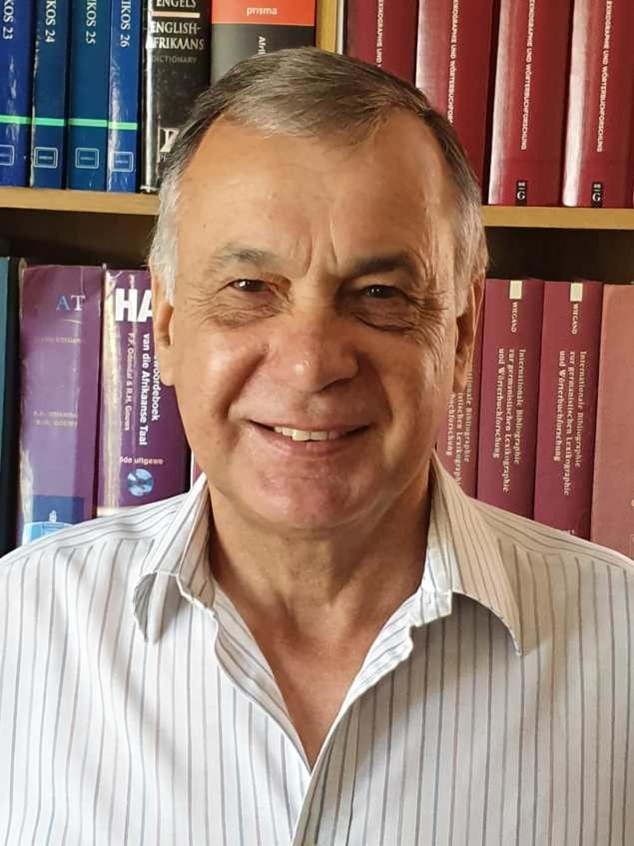 Prof Rufus Gouws has been awarded the Jan H. Marais Prize, which is administered by the South African Academy of Science and Arts.
Prof Rufus Gouws has been awarded the Jan H. Marais Prize, which is administered by the South African Academy of Science and Arts.
The prize is awarded for promoting Afrikaans as a language of science and academic pursuits and is considered a lifetime-achievement award.
Prizegiving: Students receive awards for performance in 2021
Our prizegiving, where we recognise the hard work done by our students during the previous academic year, is always a highlight on the calendar. This year the prestige event was held at Stias on 23 March. We were fortunate enough to have some our sponsors and patrons at the event. Prof Ilse Feinauer pesented the sought-after Marius Jooste Prize for the best Master's student in the Department of Afrikaans and Dutch to Ms Ancheri Götze on behalf of the South African Academy of Science and Arts.
The 2021 undergraduate prizewinners
- Best performance in ALA 178: Owethu Makosana
-
Best performance in ALA 188: Kathryn Neumann
-
Jaco van der Merwe Prize for the best performance in AD 178: Anouk Cronjé
-
Best performance in ALA 278: Megan Landman
-
Best performance in ALA 288: Kellen Daniëls
-
Corrie Burger Prize for the best performance in AD 278: Cecilia Steinberg
-
WEG Louw Prize for the best performance in Literature in third-year AD: Maryna Adshade & Joanna Gouws
-
Best performance in third-year AD: Maryna Adshade & Joanna Gouws
-
Pharos Book Prize for the best performance in Lexicography: Marle-Zanne Barnard
The students who performed the best in each undergraduate group could each choose a word from the
Woordeboek van die Afrikaanse Taal which the WAT would sponsor on their behalf.
Anouk Cronjé: “sinkopasie”
Cecilia Steinberg: “ampersand”
Maryna Adshade: “befomfaai”
Joanna Gouws: “swad”
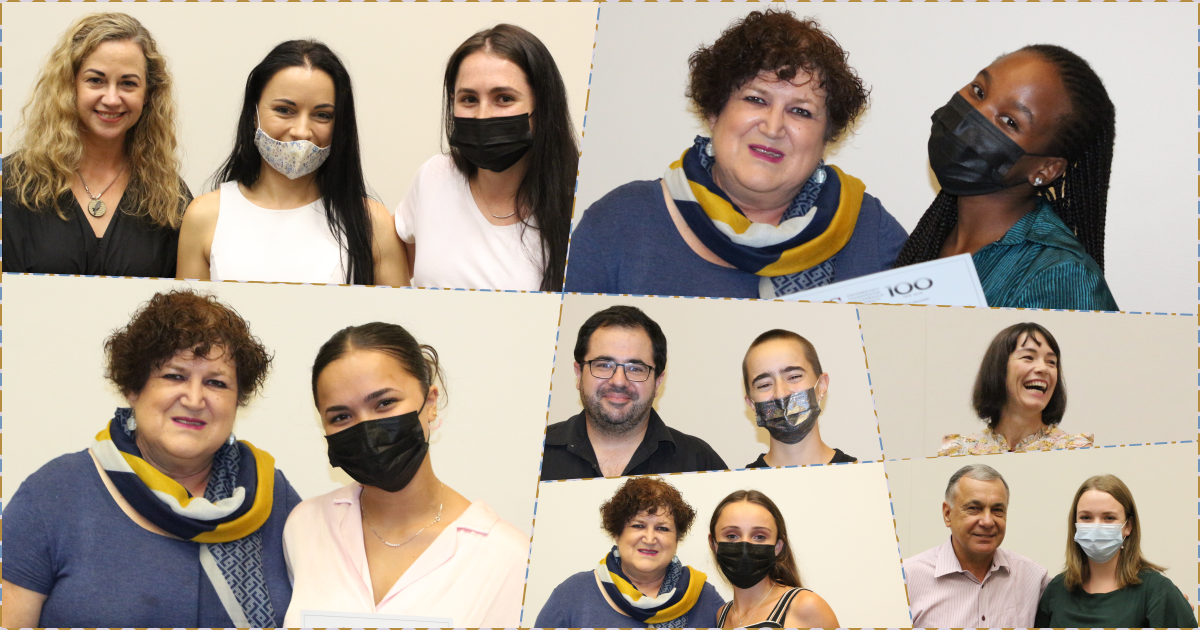
The 2021 postgraduate and short-course prizewinners
-
Subject prize for Editing: Mareli Swart & Ella van Rensburg
-
Best Honnours research assignment: Ella van Rensburg (Translation)
-
Best performance in Honours (Afrikaans and Dutch): Eleonore Basson
-
Best performance in Honours (Translation): Mareli Swart
-
Folio Prize for the best Translation student: Mareli Swart
-
Best short course in Translation student: Alison Bucholz
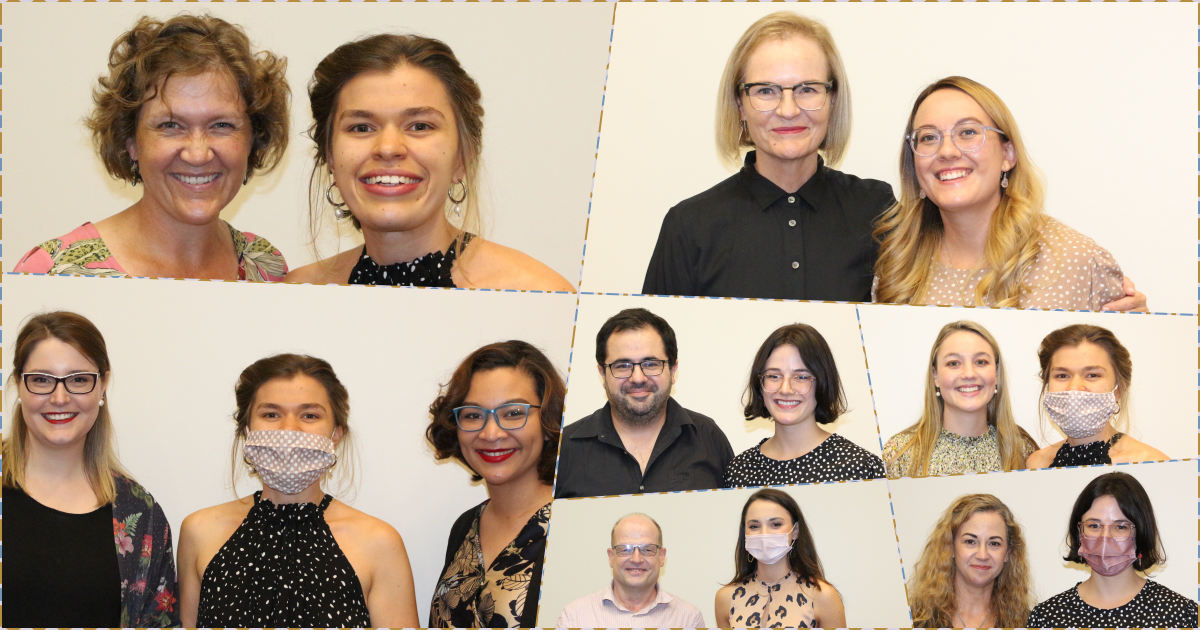
Lunching with the king
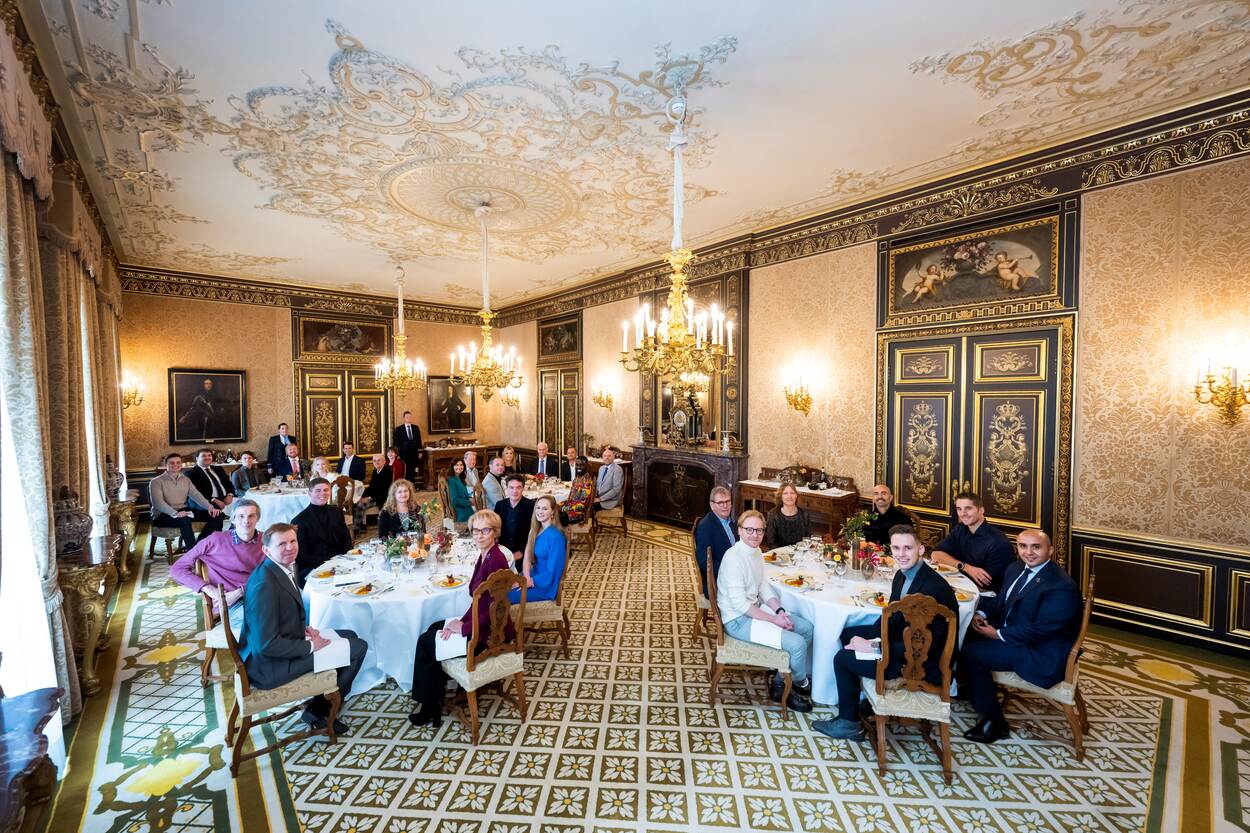 He may not be the poet laureate, but Dr Alfred Schaffer of the Department of Afrikaans and Dutch has twice been lauded and lionised in the space of a little more than a month. At the Tuin van Digters in Wellington in October and, more recently, at the Noordeinde Palace in The Hague.
He may not be the poet laureate, but Dr Alfred Schaffer of the Department of Afrikaans and Dutch has twice been lauded and lionised in the space of a little more than a month. At the Tuin van Digters in Wellington in October and, more recently, at the Noordeinde Palace in The Hague.
On 25 November 2021, King Willem-Alexander, the Dutch monarch, hosted 26 luminaries for a luncheon. Besides Dr Schaffer (who received the prestigious PC Hooft Prize in 2021), the guest list included paralympians, musicians, artists, and recipients of the Spinoza and Stevin prizes (the most important Dutch awards for academics and scientists).
Unusually, this is the second such luncheon in less than a month. The regular schedule is one every six months.
On 22 October, Dr Schaffer was honoured at the Breytenbach Centre's annual Tuin van Digters event for his contributions to poetry.
Doughty academic doubly recognised ![]()
![]()
.jpg)
In one week, Dr Amanda Lourens has twice been recognised for her academic involvement and her many and varied contributions to the Department of Afrikaans and Dutch. She has been promoted to senior lecturer (one of only a few promotions in the Faculty of Arts and Social Sciences) and received an SU Award for Teaching Excellence.
Very few lecturers receive this award each year, underlining the extremely valuable role Amanda plays in the Department and in the Faculty. She has been recognised in the category ‘Developing Lecturer’ for the way in which she reflects critically on her teaching practice and utilises literature on education to grow professionally. Since 2008 she has made an indelible mark in the Department. She is involved – to a greater or lesser extent – in teaching research methodology, editing theory and practice, textual analysis, Afrikaans poetry, feminist literary theory and academic writing.
Congratulations to Dr Amanda Lourens on her well-deserved promotion and on the institutional recognition of her commitment to her field and her students.
Alfred Schaffer celebrated at tenth Tuin van digters
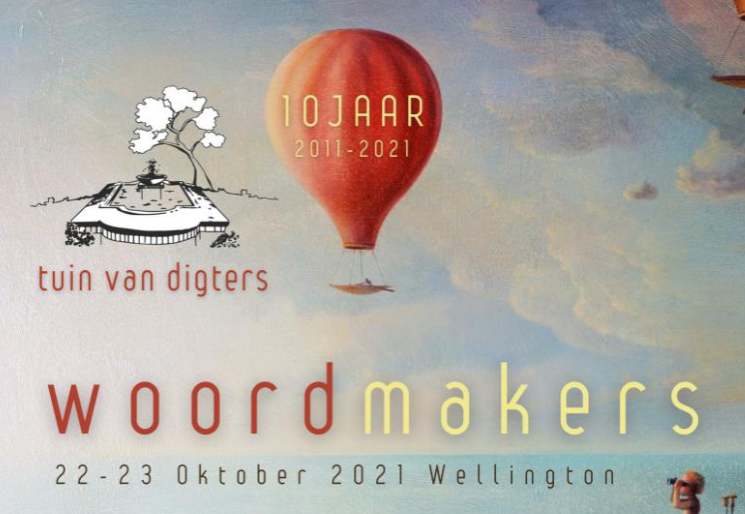 It's the tenth Tuin van digters at the Breytenbach Centre in Wellington this weekend and staff and former students of the Department of Afrikaans and Dutch feature prominently in the program.
It's the tenth Tuin van digters at the Breytenbach Centre in Wellington this weekend and staff and former students of the Department of Afrikaans and Dutch feature prominently in the program.
On Friday evening, Alfred Schaffer's contribution to Afrikaans and Dutch literature will be celebrated. In “Alfred Schaffer gehuldig: Woorden word woorde", Danie Marais and Prof. Yves T'Sjoen (Ghent University and Stellenbosch University) will examine Alfred's role as writer, translator and mentor.
On Saturday afternoon departmental alumni Ryan Pedro and Zandra Bezuidenhout will read some of their latest work during “Nuwe bundels nuwe woorde". Shortly thereafter, Marius Swart, Alfred Schaffer and Zandra Bezuidenhout will talk to Nèlleke de Jager about the art of translating poetry.
In the evening, Prof. Jerzy Koch (Adam Mickiewicz University and Stellenbosch University) will talk to Daniel Hugo about his Afrikaans poetry volume
Pleks van plaas. (Friday factoid: Prof. Koch is a Pole who is fluent in Afrikaans!)
And Saturday evening at 20:00 Ryan Pedro will be presented with the Ingrid Jonker prize for his debut,
Pienk ceramic-hondjies. Ronel de Goede, a former colleague in the Department and chair of the award committee, will take the lead here.
Want to view the whole programme? Click here!
Why spend only one day celebrating translation?

Thursday 30 September is International Translation Day. Of course, in a language department that also offers three programmes in translation (not to mention a number of short courses), the translators are busy all the year round (and definitely embodying this year's theme: 'United in Translation').
March saw the appearance of 'n Hart is so groot soos 'n vuis, Marius Swart's translation of PP Fourie's novel The Heart is the Size of a Fist. On Translation Day, both the translator and author will be talking to Peter Bergsma (the Dutch translator of JM Coetzee's work) as part of Boeken uit het Huis presented by Zuid-Afrikahuis. The talk will be live from 16:00 to 17:00 and can be viewed on YouTube.
In April, Alfred Schaffer's Dutch translation of poet Ronelda S. Kamfer's Chinatown was published by Podium. Alfred and Ronelda spoke to Ama van Dantzig about their collaboration in May.
And on 15 September, Michiel Heyns became the recipient of the newly installed UJ Prize for Literary Translation with Red Dog (2018), which appeared in Afrikaans as Buys (2014) and is, of course, a novel written by Willem Anker.
The Department's celebration of Translation Day takes place in two stages. In the run-up to Translation Day, the Honours in Translation class of 2021 elected to tackle an Afrikaans translation of two chapters from The Covid Diaries: Women's Experience of the Pandemic, edited by Prof. Amanda Gouws and Olivia Ezeobi. The class are not only honing their translation skills, but gaining experience in translation project management, quality assurance and marketing.
After Translation Day – every Wednesday morning in October, to be precise – a professor extraordinary or research fellows will deliver a virtual guest lecture on matters related to translation, interpreting and editing. Please contact lfoster@sun.ac.za if you would like to listen to the lectures by Prof Luc van Doorslaer, Prof Anthony Pym, Dr Paola Gentile and Prof Myriam Vermeerbergen.
Visit our Facebook page for translation for the latest details on this moveable translation feast!
Carry on online, ALV
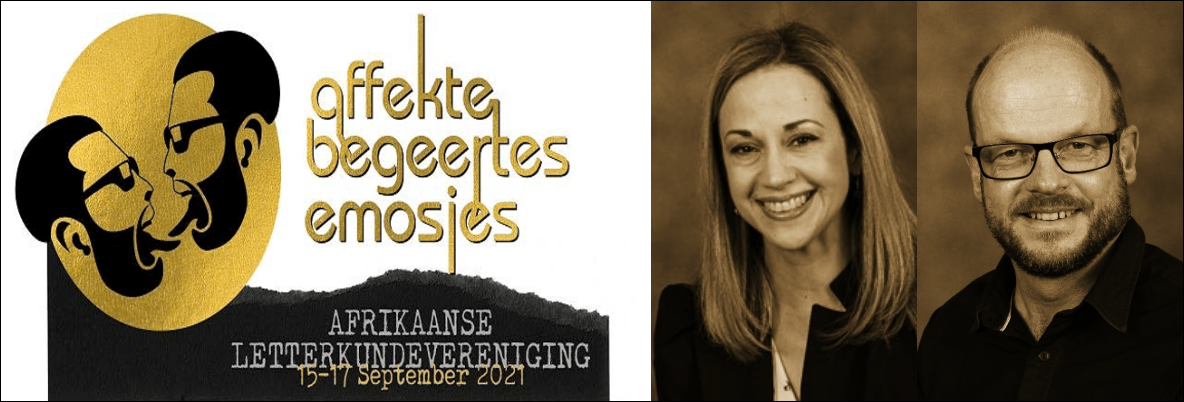
The Department of Afrikaans and Dutch will be well represented at the nineteenth conference of the Afrikaanse Letterkundevereniging (ALV) this week. Current and former students, a postdoctoral fellow, and a former colleague (Prof. Louise Viljoen) will all be reading papers. The extraordinary professor in Literature, Prof. Jerzy Koch, will be reading a paper, and the extraordinary professor in Dutch Literature, Prof. Yves T'Sjoen, will be delivering a keynote. And, obviously, Dr Amanda Lourens (paper) and Prof. Andries Visagie (keynote) will both be in attendance.
The conference should have taken place in September 2020, then in January 2021, and now, finally, it will be held online from 15 to 17 September (with all arrangements made from Gqeberha, courtesy of Nelson Mandela University's School for Language, Media and Communication). Dr Lourens and prof. Visagie both agree that the lack of discussions with colleagues over a cup of tea or coffee or during a meal (due to the online format) will be the greatest loss.
However, the exposure to new ideas and the voices of emerging academics are positive aspects of the conference that will counter the stultifying effects of lockdown. Young academics are “the future of Afrikaans literary studies", as Prof. Visagie puts it.
Prof. Visagie's keynote deals with the origin of Jan Rabie's short story “Die man met die swaar been" (from the volume
Een-en-twintig). He picked up the scent of three versions of the story while rummaging around in the Jan Rabie Collection in 2019 – at the invitation of the SU Library – with a view to contributing to the SU Woordfees. Consequently, he investigates “the socio-political and literary climate within which this highly canonised narrative originated" and considers the story to be “one of the earliest anticolonial narratives in Afrikaans".
In her paper, Dr Lourens, will be focussing on Elsa Joubert's
Spertyd, particularly themes such as loss, renunciation, detachment and transcendence. For her, this is definitely not morbid subject matter. Rather, it is a political issue. By examining literature, she wishes to transform society's thinking on matters related to ageing – society's obsession with “youth that has to be obtained through consumer goods", the marginalisation of older women. As subjects, aging and death should not be “buried", since they are “normal stages of life".
The conference theme is “Affects, desires, emotions" and interesting presentations will definitely not be in short supply. View the conference programme on LitNet.
Lecturers doubly lauded
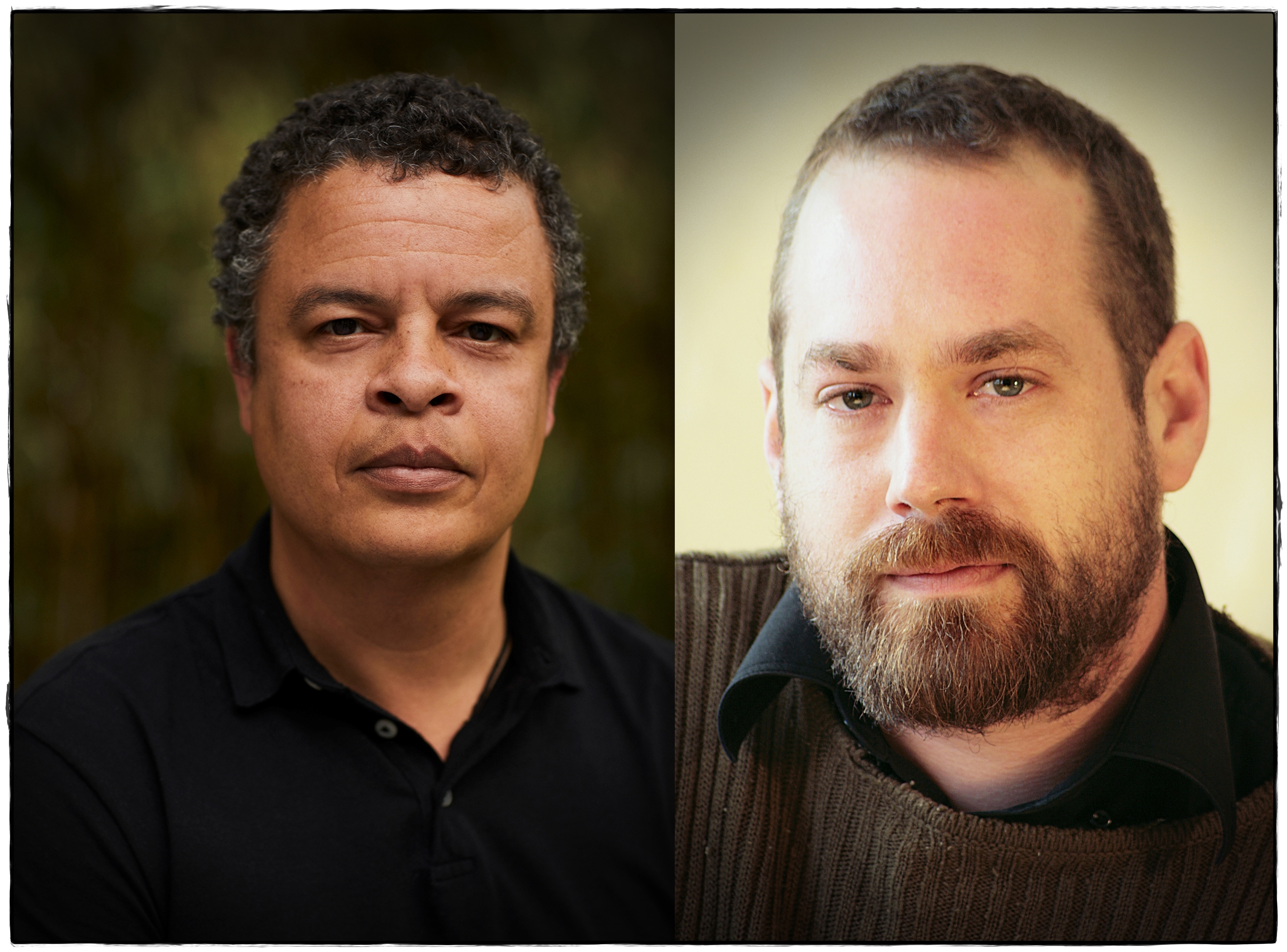 Dr Willem Anker and Dr Alfred Schaffer were both the recipients of important literary prizes this past week. Willem's third novel, Skepsel, was awarded the kykNET-Rapport Prize for fiction during a virtual ceremony on Saturday 11 September (the short awards ceremony can be viewed here), and, a few days earlier, on Thursday 9 September, Alfred received the Dutch PC Hooft Prize in The Hague.
Dr Willem Anker and Dr Alfred Schaffer were both the recipients of important literary prizes this past week. Willem's third novel, Skepsel, was awarded the kykNET-Rapport Prize for fiction during a virtual ceremony on Saturday 11 September (the short awards ceremony can be viewed here), and, a few days earlier, on Thursday 9 September, Alfred received the Dutch PC Hooft Prize in The Hague.
As part of the award ceremony for the PC Hooft Prize, a number of well-known Belgian, Dutch and Afrikaans poets – Tom Lanoye, Ronelda Kamfer, Ellen Deckwitz, Antjie Krog and Rodaan Al Galidi – read extracts from his and their own work and shared their thoughts on what makes his poetry so exceptional. You can view the whole ceremony here.
Both these author-lecturers are experiencing a tremendous amount of recognition for their work this year. Besides the 2021 UJ Prize and the kykNET-Rapport Prize,
Skepsel has also been nominated for an ATKV Woordveertjie: the winner of the ATKV Prose Prize will be announced on 17 September. And on 22 and 23 October, the Breytenbach Centre is hosting the Tuin van Digters in Wellington. Here, Alfred will be honoured for his contribution to poetry.
Dr Lorna Morris makes dictionaries work for you
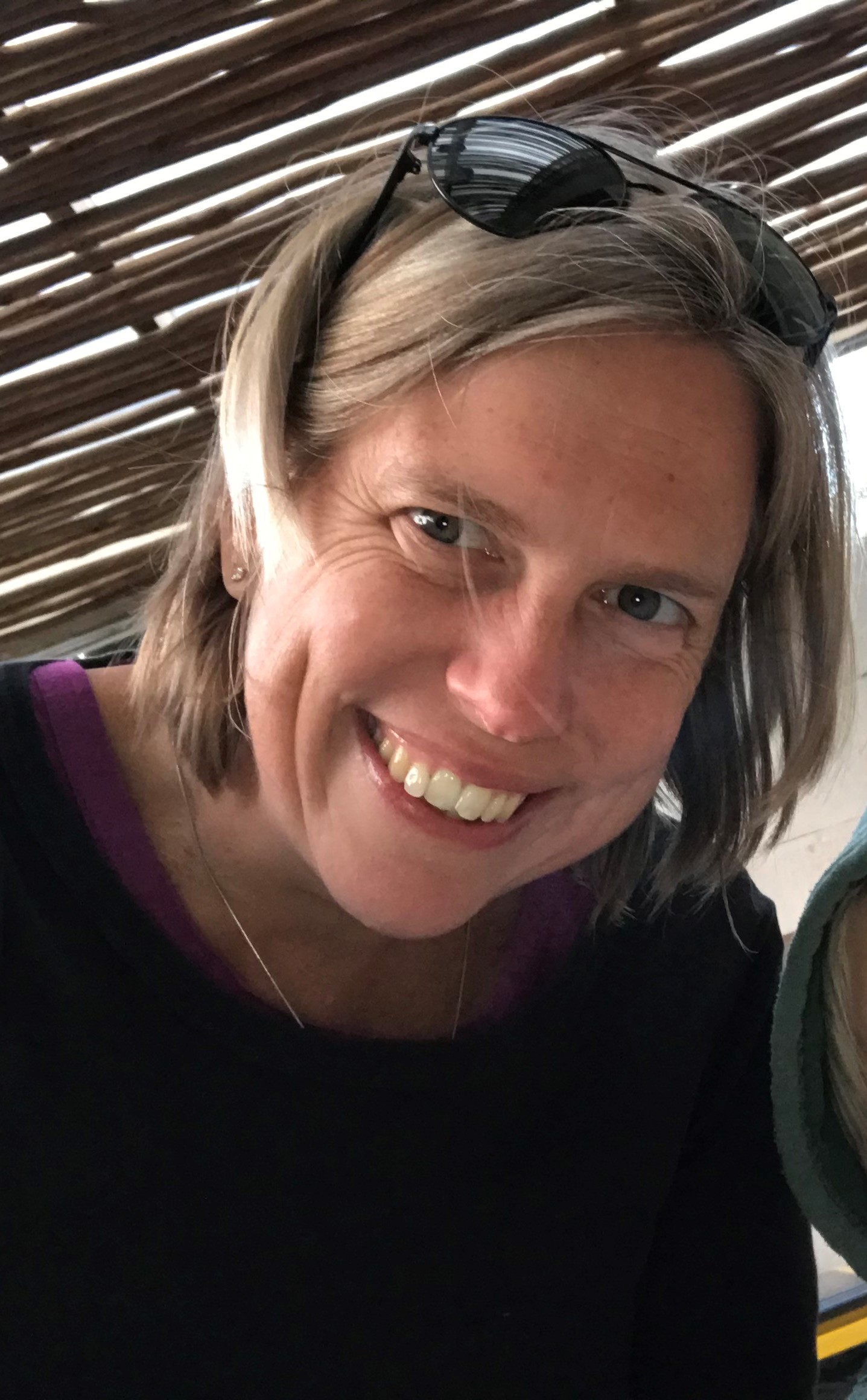
Though no-one can deny that dictionaries are extremely useful, some people are not exactly excited by them. Luckily for all of us, Dr Lorna Morris, a Consolidoc at the Department of Afrikaans and Dutch not only enjoys lexicography as an academic discipline, she is also passionate about making dictionaries as accessible and user friendly as possible.
Lorna received her PhD in Lexicography in March 2021 (under the supervision of Prof. Rufus Gouws, obviously). She says she enjoys the analytical side of the discipline – seeing how people use words, examining the word's origin and how it connects to other words (including words in other languages).
Her word sleuthing has led her to focus on school dictionaries in South Africa, investigating ways to make them more accessible, easier and more fun to use. Her intention is to help create dictionaries that people will be able to learn from. She presented a paper on an electronic school dictionary at the 25th International Conference of the African Association for Lexicography (Afrilex) held on 29 and 30 June 2021.
Her work has also drawn international attention. Although she will not be presenting a paper at Euralex – the 29th European Association for Lexicography International Congress hosted by Democritus University of Thrace in Greece, to give the conference its full name – she is one of only a few recipients of the Hornby Grant, which allows her to attend the conference free of charge. Euralex runs from 7 to 9 September and, fittingly, the conference theme is “Lexicography for Inclusion".
Lorna sees school dictionaries playing a vital role in supporting education in South Africa, helping to provide equal and valuable education to all. She believes printed dictionaries still have a job to do in South Africa, particularly in schools, but she is also investigating suitable devices and software to provide dictionary access to learners without them having to go online.
A decade from now dictionaries may all be online as a combination of freeware and subscription-based software or apps (the former with ads, the latter without), or they may be part and parcel of a particular electronic device (buy the device, get access to the dictionary). Whatever shape the dictionaries of the future will take, Lorna Morris will be doing her bit to ensure that South African dictionaries remain as accessible and usable as possible.
Translation flourishing through international networks
A South African, an Italian and a Hungarian end up together in a Belgian port. What might sound like the start of a stereotype-filled joke was actually the start of an enriching international collaboration in Translation Studies between three young academics.
Marike van der Watt (Stellenbosch University and KU Leuven), Paola Gentile (University of Trieste and University of Namur and a research fellow at SU) and Fruzsina Kovács (Pázmány Péter Catholic University) met one another in Antwerp in 2018 at the KU Leuven's Centre for Translation Studies, or CETRA.
After that CETRA contact, they convened a panel at the ninth triennial European Society for Translation Studies (EST) congress in 2019 (held in Stellenbosch). Then came another successful collaboration with a special issue of the journal Translation Spaces.
In this issue, the emphasis is on what happens when Translation Studies, Reception Studies and Imagology are linked to investigate transnational image building. Put differently, how can we use these three disciplines to examine the way in which we create and perpetuate certain images of other countries, nationalities or groups? As they put it,
“Readers' images of a country are constructed on the basis of texts that are first selected for translation, for example, and the particular ways in which translated books are subsequently promoted and packaged within their specific book covers. Cultural images thus undergo an evolution: they are constantly re-elaborated, re-shaped, re-processed, and filtered through marketing, promotion and reviewing phases."
Luckily for everyone interested in the topic, the special issue is not the end of things. Marike van der Watt is not only busy with a PhD in Translation focusing on imagology (with Prof. Ilse Feinauer, the Ton and Anet Vosloo Chair in Afrikaans Language Practice, and Prof. Luc van Doorslaer of KU Leuven as supervisors). She is also involved in a transnational research project funded by the Nederlandse Taalunie (the Dutch Language Union) and executed in collaboration with the University of Trieste and KU Leuven: “Binnenlandse vogels, buitenlandse nesten: de hedendaagse Vlaamse literatuur in vertaling en haar relatie tot het Vlaamse letterenbeleid" [“Domestic birds, foreign nests: contemporary Flemish literature in translation and its relation to Flemish literary policy"].
Festschrift for Prof. Ilse Feinauer
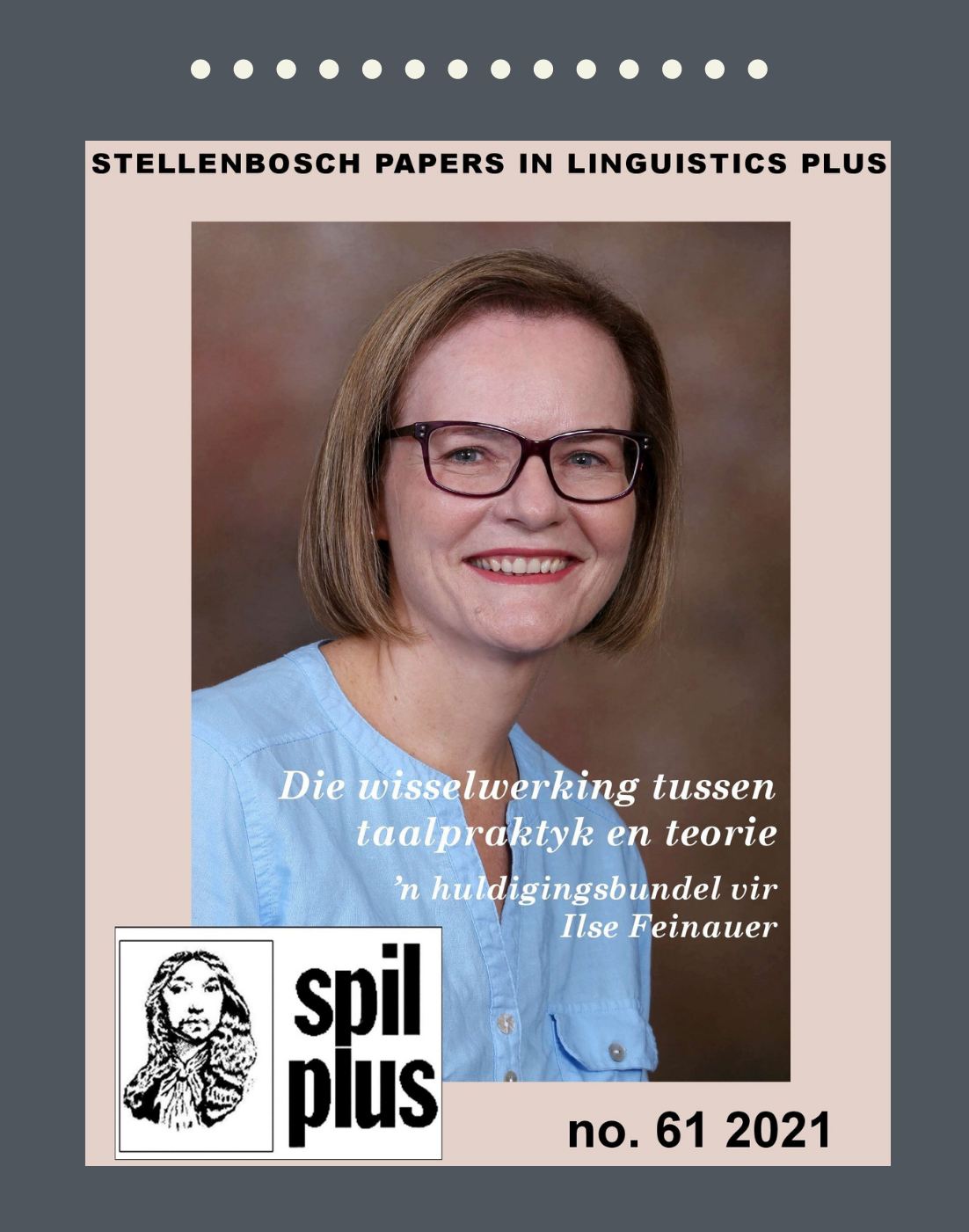
Prof. Ilse Feinauer is not only an exceptional researcher herself. She is also an academic who inspires and empowers others to do research. This is evident in the special volume of the journal Stellenbosch Papers in Linguistics Plus that has recently appeared. This festschrift had colleagues Prof. Harold Lesch and Mr Marius Swart as guest editors and focuses on the interplay between language practice and theory.
A foreword by her colleague of many years, Prof. Rufus Gouws, delineates Prof. Feinauer's remarkable contribution to a variety of research areas. It is followed by eight articles by various international and South African academics – and a number of students of the Department of Afrikaans and Dutch.
The first article by Prof. Luc van Doorslaer, affiliated with the University of Tartu (Estonia) and KU Leuven (Belgium) and extraordinary professor (Translation) at the Department of Afrikaans and Dutch, focuses on how South Africa and South Africans are portrayed in Dutch-language newspapers – in other words, how is South Africa's image translated into Dutch.
Other international contributions are those of Prof. Anthony Pym and Prof. Myriam Vermeerbergen. Prof. Pym is extraordinary professor (Translation) in the Department of Afrikaans and Dutch, but is also affiliated with Rovira i Virgili University (Spain) and the University of Melbourne (Australia). His article focuses on cosmopolitan translation and how world views might be changed. Another colleague from the KU Leuven, Prof. Vermeerbergen, is one of the research associates at the Department of Afrikaans and Dutch. She collaborated with two South African sign language interpreters, Ananda and Banie van der Walt, to produce an article on a project to translate 110 Bible stories into South African Sign Language.
Naturally, local experts are not outdone by their international counterparts. Prof. Marné Pienaar (University of Johannesburg) has a contribution involving
a comparative study of Afrikaans and Zulu translations of Adam Habib's South Africa's Suspended Revolution: Hopes and Prospects. Prof. Kobus Marais (University of the Free State) links up with Prof. Feinauer's efforts to expand translation studies as an academic discipline in Africa and investigates the position of translation studies on the continent, with comparative translation as a particular focus.
The article by Ms Lelanie de Roubaix and Dr Amanda Lourens from the Department of Afrikaans and Dutch emphasises the visibility of the translator and the act of translation in reviews of translated English and Afrikaans novels.
Besides the foreword, Prof. Gouws also contributed an article to the volume.
It spotlights lexicographic data distribution and data pulling and suggests some improved lexicographic structures.
The final contribution is that of Prof. Lesch and Ms. Simoné Gambrell. They investigated interpreter training – specifically the development of aptitude tests for simultaneous interpreting.
From the variety of topics, the tremendous role played by Prof. Feinauer, the incumbent in the
Ton and Anet Vosloo Chair in Afrikaans Language Practice, is most certainly evident. Congratulations to Prof. Feinauer and all the contributing authors!


